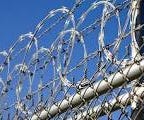Why Black People are Loud
The history of slaves leads to the origins of a stereotype.
By Dortell Williams
You’d better bring a set of ear plugs if you’re coming to my house for Thanksgiving or Christmas, especially if my father’s side of the family is coming. They have a tendency to talk as if they’re shouting across the street. An outsider may think we’re all deaf. It makes for a very loud occasion. This is not uncommon among black people, so much so that a stereotype has evolved that we are loud.
But when I read the history of black folk, I finally understood where this stereotype, and my family’s habit of speaking in inappropriate volumes, came from.
As is the case with most African-Americans, the Williamses are descendants of slaves, getting our last name from an owner of human chattel. (In our case, Williams was a very prolific owner in Texas.) In slave quarters, the blacks spoke loudly on purpose so the masters could hear what they were talking about, thus allaying fears of revolt or escape. Slaves speaking in whispers raised suspicions — and the specter of punishment. The habit of talking loudly, even if it happened on a subconscious level, served to suppress tensions on the plantations.
The custom of loud households passed down through the generations, but it’s certainly not true of everyone. I’m one of the most soft-spoken in my family. I figure my childhood shyness gave me immunity from loudness.
So that’s why some black people are loud. Should I say it louder?
About the Author
Dortell Williams, who is often asked to speak up, recently graduated from seminary school and is pursuing an AA in business and a BA in communication theory from California State University-Los Angeles. A published author, he loves to read, mentor youth and help crime survivors heal from their trauma. He can be reached at H-45771/A5–204 P.O.Box 4430 Lancaster CA 93539 or at dortellwilliams@gmx.com.
